Breast cancer continues to claim the lives of far too many Ghanaian women, not because it cannot be treated, but because many are diagnosed too late and face financial and systemic barriers to care. The Ministry of Health has reasserted its commitment to change this narrative — with a focus on early detection, affordability, and compassion.
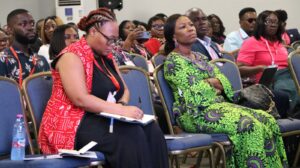
Speaking at the 6th Annual General and Scientific Meeting 2025, themed “Advanced Breast Cancer – The Underserved Majority: Challenges and Opportunities,” Deputy Minister for Health, Hon. Dr. Grace Ayensu-Danquah, made it clear: Ghana cannot afford to treat breast cancer as business as usual.
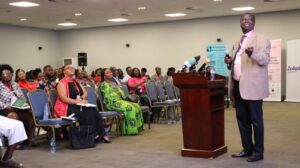
She revealed that while survival rates in high-income countries are nearly 90%, Ghana’s survival rate stands at less than 40%. This glaring disparity is a call to urgent, coordinated action.
“We must shift diagnosis away from advanced stages III and IV, where survival chances are lowest, and move toward early detection where interventions are most effective,” Dr. Ayensu-Danquah stressed.
The Ministry’s new strategy rests on three powerful pillars: Access, Affordability, and Compassion. Plans are underway to integrate breast health services into the Free Primary Health Care initiative, expand community awareness campaigns, and strengthen referral systems to ensure no woman is left behind.
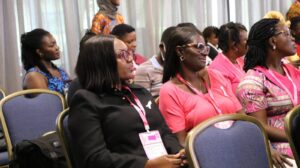
Financial barriers remain one of the biggest threats to survival. While the NHIA continues to cover breast cancer care, the newly launched Ghana Medical Trust Fund (MahamaCares) is expected to provide much-needed relief for vulnerable patients. But as Dr. Ayensu-Danquah emphasized, breast cancer care must go beyond medication — it must also protect the dignity, emotional wellbeing, and holistic health of women battling advanced stages of the disease.
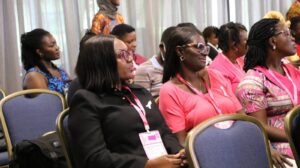
Another milestone is on the horizon: the establishment of a National Cancer Registry, which will finally provide Ghana with reliable data on incidence, treatment outcomes, and survival — critical for better planning and resource allocation.
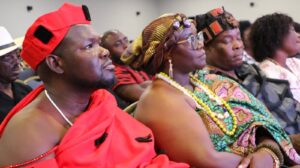
But the Ministry cannot do it alone. Dr. Ayensu-Danquah issued a passionate appeal to development partners, research institutions, civil society organisations, and the private sector to join hands in this fight.
“Together, we can change the story of breast cancer in Ghana. Together, we can save lives.”
Breast cancer should no longer be a death sentence for Ghanaian women. This is not just a health issue — it is a matter of equity, dignity, and justice.






Your sentences move with quiet intention, forming patterns of thought that are at once structured and fluid, producing a reading experience that is immersive and contemplative.
Thank you very much